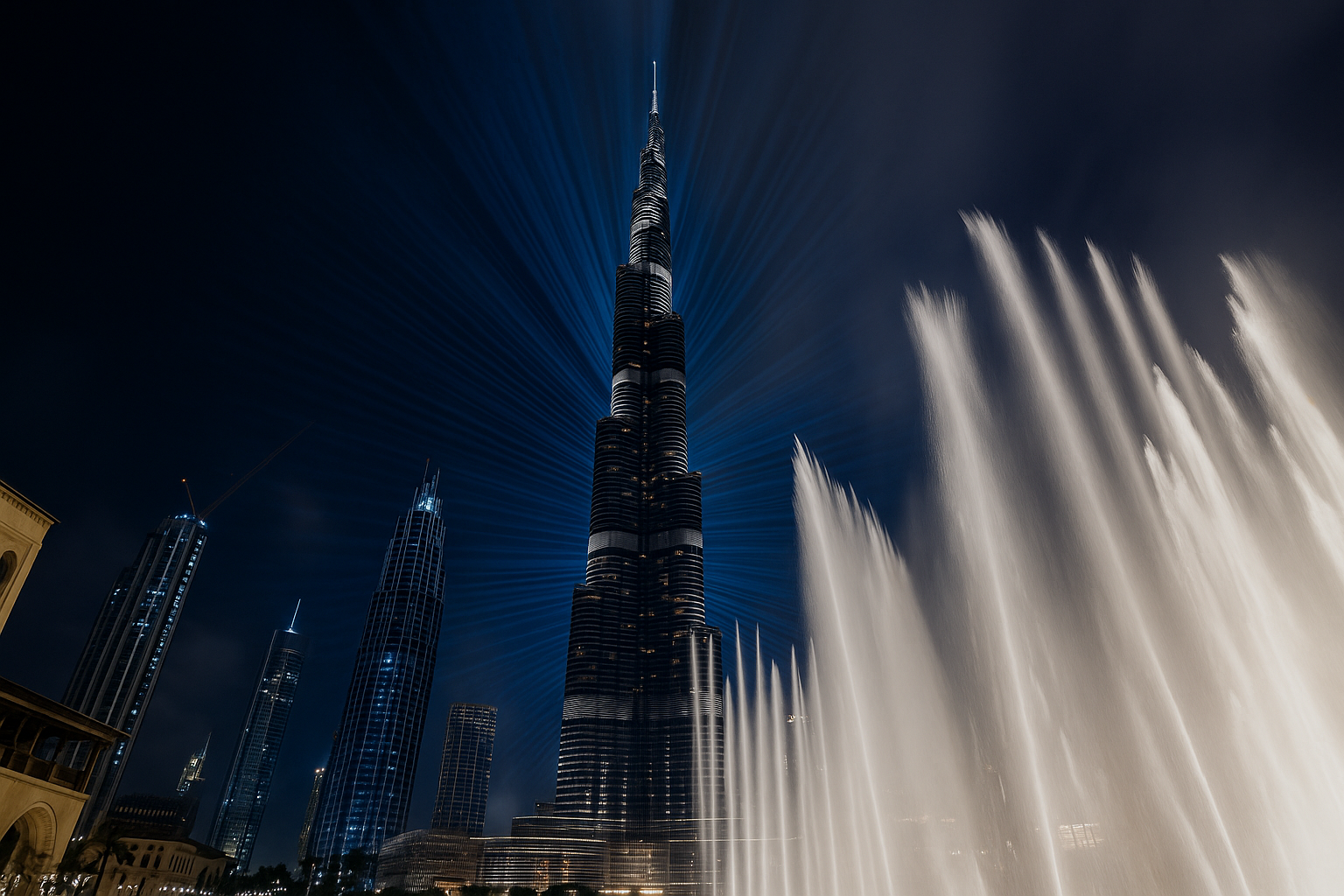Leading the Global Stage: Dubai’s Potential as the Next Major Hub


Dubai, a city once reliant on oil, has strategically diversified its economy to emerge as a global business and tourism hub. From futuristic skyscrapers to an innovative tax-friendly environment, Dubai is steadily positioning itself as the next major international center for finance, technology, logistics, and tourism. This article explores Dubai’s potential to lead on the world stage and become a dominant global hub in the coming decade.
Dubai’s strategic location between Asia, Europe, and Africa makes it a crucial junction in international trade and travel. Within an eight-hour flight radius, Dubai can connect with two-thirds of the global population. This geographical advantage is leveraged by its two world-class airports — Dubai International Airport (DXB) and Al Maktoum International Airport (DWC) — which handle millions of passengers and cargo tons annually.
The Port of Jebel Ali, the largest man-made port in the world, plays a key role in global shipping and logistics. Managed by DP World, it’s ranked among the top 10 container ports globally, making Dubai an indispensable part of the global supply chain network.
Dubai attracts global businesses with its tax incentives, including 0% personal income tax and over 30 Free Zones that allow for 100% foreign ownership, repatriation of profits, and minimal bureaucracy. These conditions are highly appealing for startups, SMEs, and multinational corporations alike.
The UAE consistently ranks high in the World Bank’s Ease of Doing Business Index. Dubai offers a transparent regulatory environment, streamlined digital government services, and simplified procedures for business registration, licensing, and operations.
Dubai’s vision to become the world’s smartest city by 2030 is rapidly materializing. Through Dubai Smart Government and Dubai Future Foundation, the city is investing in AI, blockchain, and IoT technologies to digitize public services and enhance urban efficiency.
Projects like Dubai Blockchain Strategy, RTA’s autonomous transport roadmap, and AI-powered city surveillance systems show how cutting-edge technology is shaping everyday life and business operations in Dubai.
Dubai’s investment in green buildings, renewable energy, and sustainable transport has made it a front-runner in eco-conscious urban planning. Initiatives like Dubai Clean Energy Strategy 2050 and Masdar City partnerships indicate a long-term vision of resilient and sustainable growth.
The Dubai International Financial Centre (DIFC) is a globally recognized financial free zone, housing more than 4,000 firms including hedge funds, fintech startups, investment banks, and law firms. DIFC offers a robust legal system based on English Common Law, world-class infrastructure, and access to a deep pool of financial talent.
Dubai is rapidly becoming a fintech powerhouse, with significant government backing and private investment. The launch of Dubai FinTech Hive and the Emirates Blockchain Strategy 2021 showcases Dubai’s commitment to leading the global transition into decentralized finance and Web3 applications.
With landmarks like the Burj Khalifa, Palm Jumeirah, and Dubai Mall, the city attracts millions of tourists annually. Dubai’s successful hosting of Expo 2020 further demonstrated its capacity to organize large-scale international events, opening the door to increased tourism and business opportunities.
Dubai is home to some of the most luxurious hotels in the world, including the iconic Burj Al Arab. Its multicultural society, safe environment, and warm climate attract expatriates and tourists alike, strengthening its reputation as a cosmopolitan metropolis.
Dubai’s focus on education and innovation is evident from its top-tier universities, international schools, and government programs like Dubai Future Accelerators and One Million Arab Coders. These initiatives are cultivating a future-ready workforce and attracting talent from around the globe.
With world-class healthcare, affordable luxury housing, and a tax-free income, Dubai is one of the most appealing places for expatriates to live and work. Over 85% of its population is expatriate, creating a diverse and globally connected labor pool.
Under the leadership of HH Sheikh Mohammed bin Rashid Al Maktoum, Dubai’s transformation has been relentless. The UAE Centennial 2071 Plan and Dubai 2040 Urban Master Plan demonstrate long-term commitment to becoming a knowledge-based, innovation-driven economy.
Dubai leads the world in e-governance, offering over 90% of public services digitally. Initiatives such as Dubai Now, Paperless Government, and AI-enabled city management platforms are streamlining operations and improving quality of life.
While Dubai has made impressive strides, it faces global economic fluctuations, competition from rising cities, and environmental sustainability pressures. However, its resilient economy, proactive leadership, and adaptive business environment make it well-positioned to capitalize on global shifts.
Dubai is not just preparing to lead — it is actively leading. From logistics and finance to AI and green energy, every sector of its economy is being reshaped to align with future global trends. With unmatched infrastructure, smart governance, and a clear vision, Dubai is poised to become the next major global hub and a model for cities worldwide.